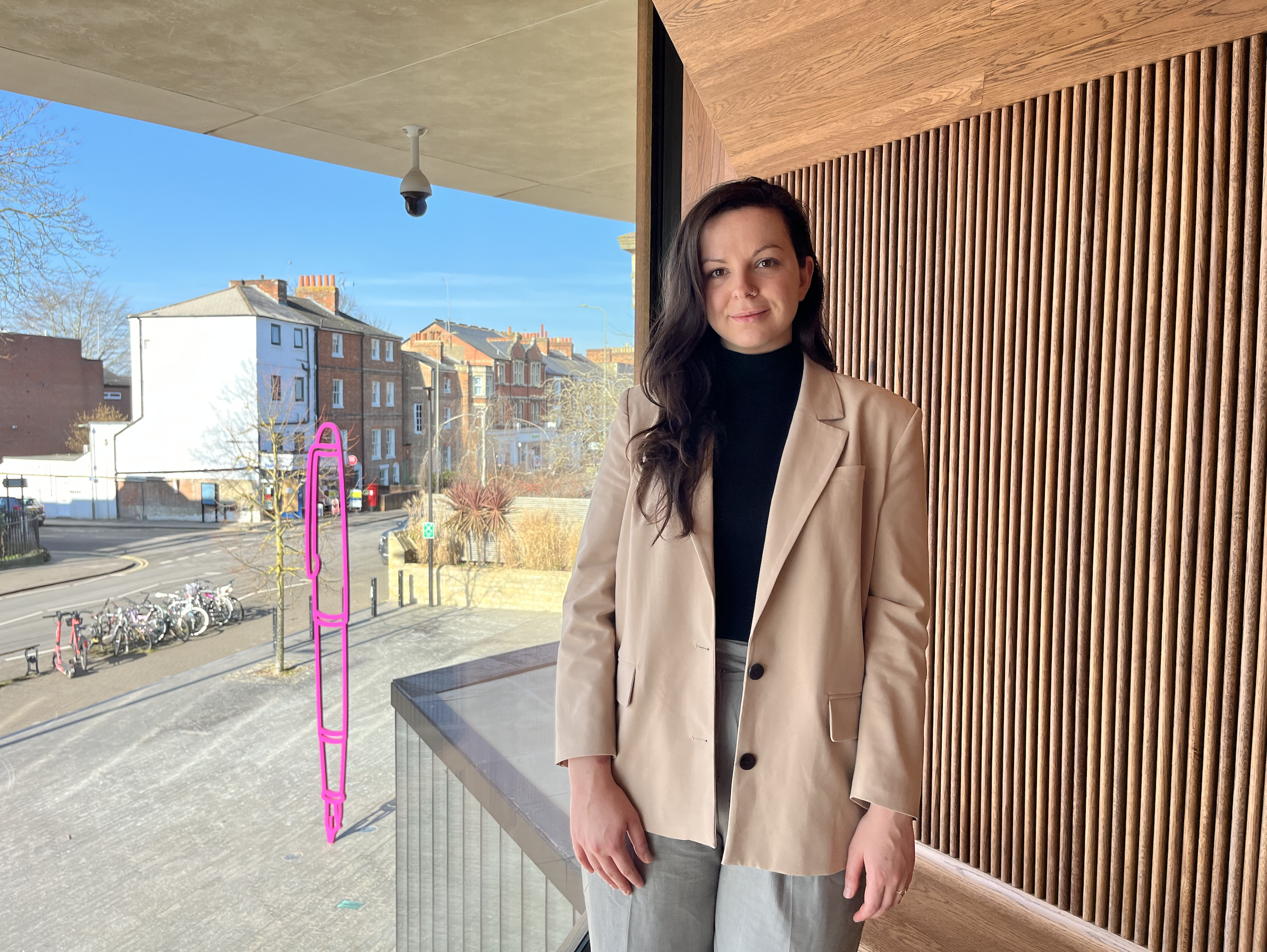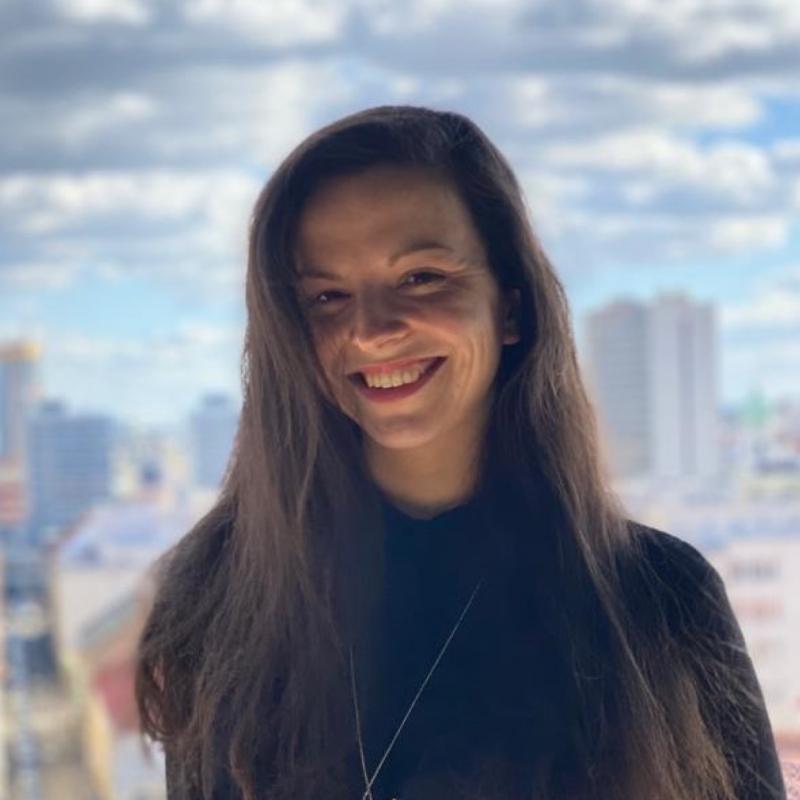Student life: Interview with Ema on interactive teaching
For the past eight years, the Case Centre on Public Leadership has been working with Blavatnik School faculty to bring interactive teaching materials into the classroom. Our case writers sat down with recent Master of Public Policy alumna Ema Grajcarová, who is currently doing an MSc in Public Policy Research, to talk about her experience of teaching with case studies and other interactive materials.

Hi Ema, thanks so much for taking the time to talk with us today. Firstly, why don’t you tell us a little about your background?
Thanks for having me! I was born and raised in eastern Slovakia and pursued my education in the Czech Republic and London. Professionally, I have nearly five years of experience in Slovakia's public sector, focusing on the Slovak Recovery and Resilience Plan, part of Europe's post-pandemic reform and investment initiatives. At the moment, I am pursuing an MSc degree at the Blavatnik School, focusing my research on addressing violence against women in politics.
What was your experience of learning at the Blavatnik School during your MPP?
The MPP is very, very interactive. Generally, there are lectures and seminars, and then the case discussions which link everything together. Altogether, you get a comprehensive package of knowledge. The teaching is not just about the theory; the case studies add one more step, giving you the chance to apply everything you’ve learnt into a complex real-world setting.
It was definitely demanding. However, if you prepared well and engaged with the readings, you can grasp the underlying theories in lectures, discuss them in seminars, and then see how they play out in practical applications during the interactive discussions.
What made case studies stand out for you?
Professors are always offering examples to illustrate concepts. But for me, the case studies stood out because of their realism, depth, and complexity. In a case discussion, you are confronted with an actual decision a leader had to make – and it was never evident on the first glance what the answer is. For example, when discussing corruption, we all know that ‘corruption is bad’, but in the case discussion about what to do about it, the story was so real and complex that it was not easy to say I would do this or do that. Real-life scenarios are never black or white. So the case studies really make you think and bring up your own experiences and your own moral judgements. In my experience, the case discussions made me think on a second level, a deeper level than a traditional lecture requires you to do.
What makes a great case discussion?
A great case discussion starts with preparation. Expectations should be high so that everyone in the class should come ready to engage. It’s also about creating an environment where students feel comfortable asking questions and exploring different viewpoints. What can also be good is when the case decision is a little controversial and catches everyone’s attention – that can make for a great, intense discussion.
The role of the instructor is crucial. I found that the best facilitators have a clear structure in mind and have really well prepared questions. In the most memorable classes, you as a student think you are just discussing what you want and leading the conversation where it naturally flows, but actually the instructor is leading you exactly where they want. In the end, you get this beautiful symphony – the students are the ones discussing the case and then the instructor draws it all together to highlight the key concepts.
Do you have a favourite case study?
One of the standouts for me was ‘Sign here’: politics and integrity in public administration. It’s a case all about a civil servant having to decide whether to approve a list of new recruits in his ministry or not when he suspects that the recruitment process had been corrupt. The classroom was so engaged that at one point, we had a really intense, fiery discussion, completely caught up in the ethical dilemma. There are only two real options – sign or don’t sign – and Jo Wolff, our instructor, was really pushing us, making us think through these really uncomfortable trade-offs under time pressure. It was really great. Many of us changed our views as the discussion evolved. Some classmates even shared personal stories of facing corruption, which made the discussion even more impactful. There are no right answers in a story like that but it’s about building your own integrity and learning how to use that in the moment.
And advice for future MPPs?
This might sound boring, but read your case studies! Coming prepared really changes the experiences for you and for your classmates – for everyone. It’s such as shame and such lost time if you don’t engage and it’s so enriching if you do.
At the same time, don’t pressure yourself to excel in every discussion. It’s okay not to be an expert in every topic. The key is to acknowledge when you don’t understand, and be open and candid with your questions. Then there will be times when you are the expert. I knew I couldn’t become an expert on Brazilian education, for example, in one week, but then there was another time when we discussed the EU and flag burning in Germany. I felt I knew more than some of my classmates on that area so I could offer my expertise there. But, at the same time, hearing their perspectives on the topic, it really got me out of my own thinking and opened up some new horizons.
The interactive teaching at the Blavatnik School is an incredible opportunity to develop critical thinking, debate important issues, and see the real-world implications of policy decisions. Make the most of it!

